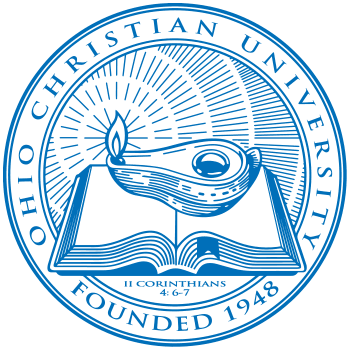This program is designed to prepare students for a career working within sport business organizations. It prepares individuals to use leadership and management principles to be successful in the daily arena of sport and business, culminating with an internship requirement to apply the concepts learned in the curriculum.
Objectives:
On completion of the program, students should be able to:
- Explain the psychological and spiritual aspects of sport.
- Understand the principles for effective management in a variety of sport applications and situations.
- Examine the integration faith in sport business management.
- Analyze legal and ethical dilemmas involved in sport today.
- Perform appropriate organizational and administrative procedures for sport and recreational activities.
- Evaluate business conditions and propose courses of action for improvement.
MAJOR60 Hours
-
ACC2020 Accounting I3
The double-entry system of bookkeeping and the basic accounting cycle, including communicating financial information according to generally accepted accounting principles.Prerequisite: MAT1250 or higher
-
BUS1070 Microeconomics3
Principles of economic analysis with emphasis on microeconomic theory as it applies to the decision-making of households, businesses, and industries in the current economic environment, including scarcity of resources, opportunity cost, supply & demand, specialization and trade, and the role of government. Pre-requisite: MAT1250 or higher
-
BUS2070 Macroeconomics3
Introduction to economic analysis at the aggregate level, including the impact of both domestic and international policies on key economic indicators and on overall macroeconomic performance. Recommended: College-level economics course
-
BUS3050 Business Law3
Principles and practices of law, and their impact on business situations, emphasizing the dynamic interaction between the individual, organization, and society, in the context of Christian ethics and proper business conduct.
-
BUS3280 Business Analytics & Statistics3
Methods and tools to interpret, evaluate, and analyze business data and determine the appropriate statistical methods for decision-making in business, including the use of probability, distribution, sampling, simple linear regression, and correlation analysis in the presentation of business information, with emphasis on the interpretation and integrity of charts, graphs, and other numerical and statistical presentation of data.Prerequisite: MAT1250 or higher
-
LDR3200 Organizational Leadership3
Models of effective organizational leadership and the impact of administrative structure, power and politics, conflict resolution, and motivation within the context of the organizational culture.
-
MGT4260 Strategic Management3
This course will address the system concepts, methodologies, and tools to strategically plan and effectively manage core competencies needed by businesses in today’s global environment.Prerequisite: MGT1000
-
MGT1000 Introduction to Management3
Accepted management principles from historic and contemporary perspectives with application to not-for-profit and for-profit organizations.
-
MKT1050 Introduction to Marketing3
The interacting marketing activities of analysis, planning, implementation, and control with a focus on competitive and customer analysis, marketing strategy development, and implementations for decision-making in domestic and global organizations. The course incorporates current developments in marketing, including the social, legal, ethical, and technological environments of marketing. Students apply these skills and concepts in a real marketing situation to make recommendations for marketing strategy and tactics.
-
PSY3120 Sport Psychology3
The study of psychological and related theoretical concerns associated with sports, in relationship to prayer and spiritual influence.Prerequisite: PSY1020
-
SBM1020 Introduction to Sport Management3
Introduction to the sports industry, including foundations of sports management and an awareness of career opportunities in the sports industry, history of the profession, management and organizational skills, current trends, and future issues.
-
SBM2030 Sport Culture and Environment3
The interaction between sports and society, including relationship of sports to social variables, institutions, and social issues, and ethical dilemmas in sports, within a Christian worldview perspective.
-
SBM2060 Sport Finance3
Financial aspects of the sport industry, including basic finance principles and financial control of sports facilities and organizations.Prerequisite: ACC2620
-
SBM2100 Sport Media3
Examines the influence of media on the sports industry with a particular influence on social media. Students will learn several sport organization’s application standards for social media platforms and the history of these tools. Students will also learn techniques and research current approaches to social media usage in today’s sporting climate.
-
SBM2200 Fundamentals of Coaching3
This course focuses on the developing students’ knowledge of effective coaching methods and techniques. It will correlate across a range of sports on an introductory level. Students will apply knowledge to create a philosophy for long-term success as a coach for youth, interscholastic, collegiate, or professional sports.
-
SBM3140 Event Planning and Management3
This course includes the process of planning for and organizing an event in sport. Organizing a plan for an event would include financial planning, risk management, scheduling, facility use, communication, promotions, and registration.
-
SBM3750 Sport Governance3
Sports create governance structures, policies, and procedures, even at the most rudimentary level. This course examines the purpose and practice of sports governance and how it relates to sports administration from little league to the Olympic games to international federations to professional sports. The roles and functions of governing bodies are discussed and analyzed.
-
SBM4230 Sport Marketing and Sales3
Promotion and marketing in the sport and fitness industry, including the area of professional sports, corporate fitness, college/high school athletics, clubs, and resorts.Prerequisite: SBM1020
-
*SBM Internship6
Graduation Requirements:
In addition to the courses listed on this page, graduates must meet the requirements listed here, including:
- A General Education Core
- Associate degrees – 36 credit hours
- Bachelor’s degrees – 45 credit hours
- Minimum credit hours
- Associate degrees – 60 credit hours
- Bachelor’s degrees – 120 credit hours
-
Notes:
- Some majors require more credit hours than the listed minimums.
- Students choose elective courses to complete credit hour requirements.
- Electives may apply toward a minor, certificate, associate degree, or second major.
- Sometimes a course required in a student’s major can also fulfill a requirement in the GenEd core. (See notes on the individual major pages.)
Find complete information in the OCU Academic Catalog.
Contact the University Registrar's Office if you have graduation questions: 1 (740) 477-7780 or registrar@ohiochristian.edu
